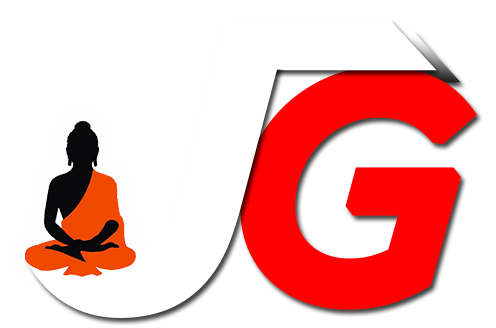The Heart of the Pilgrim in Taoism, Buddhism, and Hinduism
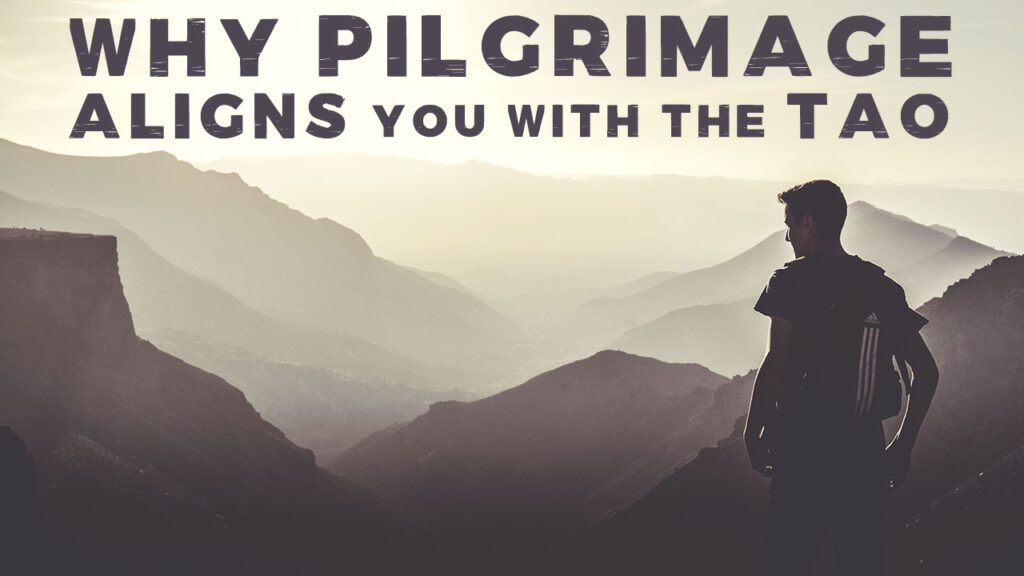
In this podcast, we will explain why pilgrimage is important for spiritual growth and understanding. Ultimately, pilgrimage is a deep lesson in humility and surrender, which is why it is recommended for all sincere seekers interested in the Eastern traditions of Taoism, Buddhism, and Hinduism. The pilgrim’s heart is often misunderstood because we are socially confining ourselves to comfort zones that don’t really exist other than within one’s mind and fear of insecurity. The pilgrimage is a medicine for this fear to free one from the boundaries we build in our mind that protects an ego that doesn’t really exist. Learn how the pilgrimage can bring you back to your true nature. NOTE: This site directs people to Amazon and is an Amazon Associate member. As an Amazon Associate I earn from qualifying purchases, at no additional cost to you. The pages on this website may contain affiliate links, which means I may receive a commission if you click a link and purchase something that I have recommended. This goes a tiny way towards defraying the costs of maintaining this site.
The Taoist Story of Robber Zhi and Confucius | SHORT FILM
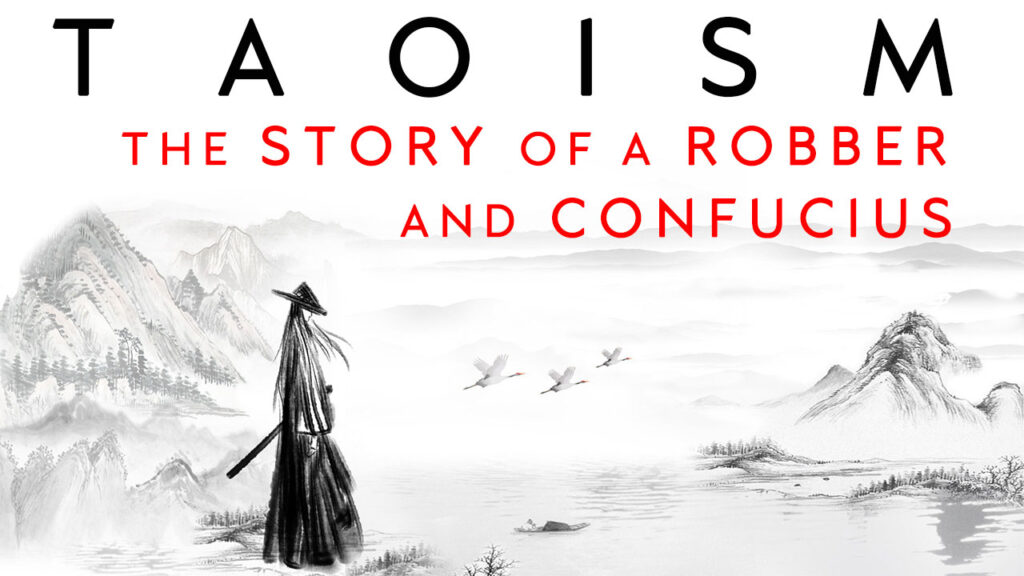
Equal to the Tao Te Ching is the great Taoist text known as the Zhuangzi, attributed the great sage Zhuangzi. One of the chapters in the Zhuangzi text is the story of Robber Zhi and Confucius. This passage tests our spiritual understanding of Taoism and essentially reveals any biased moral motivations we may still be holding onto. The chapter itself is one of the least understood and known because of its peculiar nature. But the problem is in how one should understand this chapter. Many took this story for fact and others couldn’t understand it because of their own sense of morality, all missing the beauty of its teachings. This short film exposes the nature of the story is a parody, essentially designed to test your embodiment of the Taoist mind and way of life. Zhuangzi wants to breakdown all of your unnatural conditioning and thrust you back into the real world which is beyond socialization. The words of Zhuangzi are expertly translated by the great Sinologist and writer Burton Watson and narrated by myself. NOTE: This site directs people to Amazon and is an Amazon Associate member. As an Amazon Associate I earn from qualifying purchases, at no additional cost to you. The pages on this website may contain affiliate links, which means I may receive a commission if you click a link and purchase something that I have recommended. This goes a tiny way towards defraying the costs of maintaining this site.
The Art of Surrender in Taoism, Buddhism, and Hinduism
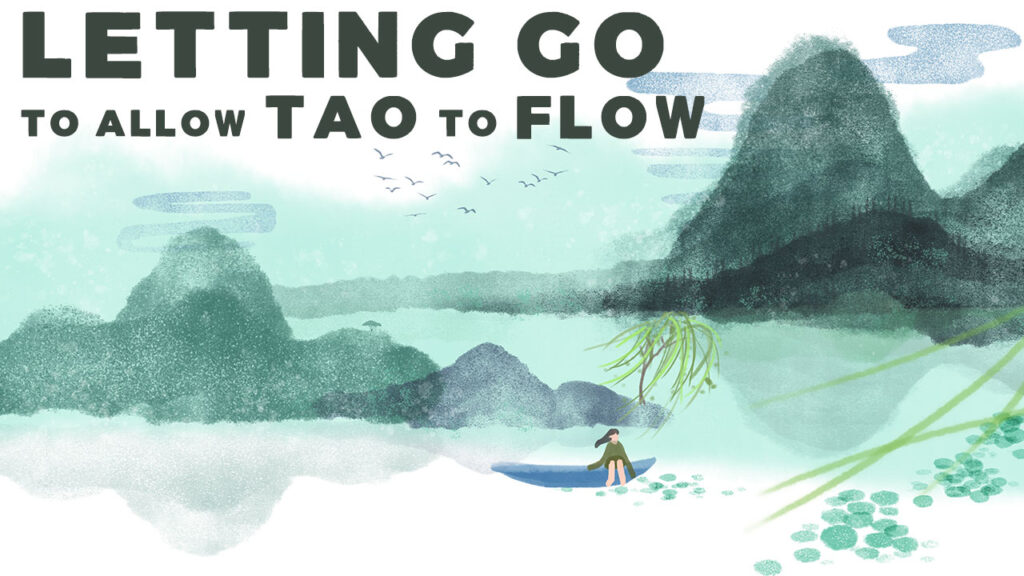
In this podcast, we will speak about the significance of surrender and trust in the great Eastern spiritual traditions. One of the core tenets within Taoism, Buddhism, and Hinduism is the art of letting go to allow one’s life to accord with That which is much greater than ourselves. But what is that something greater and how to actually let go and align with it? What will happen to our life and sense of self if we allow the ultimate reality’s power to become our power? Find out! NOTE: This site directs people to Amazon and is an Amazon Associate member. As an Amazon Associate I earn from qualifying purchases, at no additional cost to you. The pages on this website may contain affiliate links, which means I may receive a commission if you click a link and purchase something that I have recommended. This goes a tiny way towards defraying the costs of maintaining this site.
Tao Te Ching Chapter 2 Explained: Beyond Good and Evil
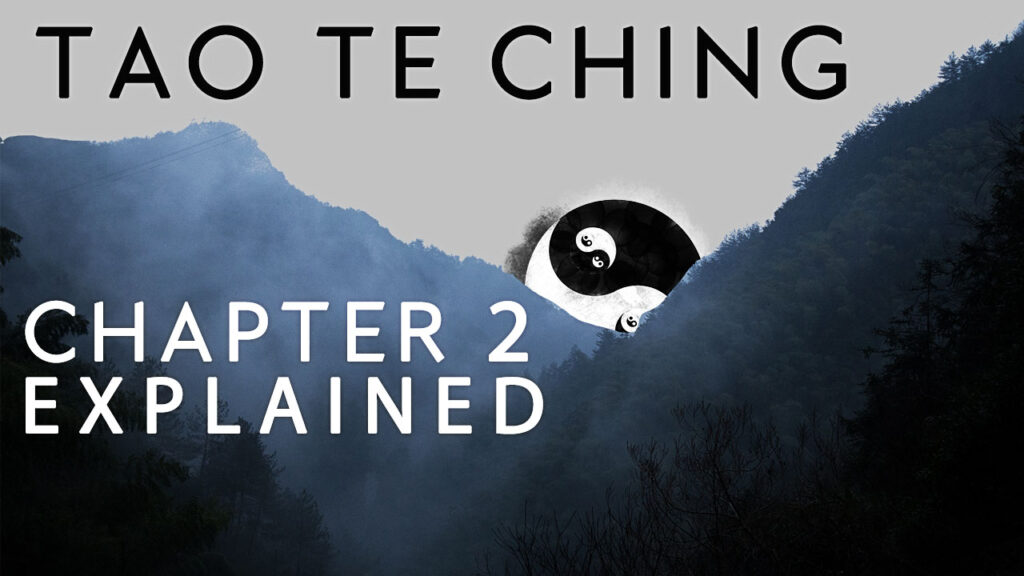
In this podcast, we will dissect chapter two of the Tao Te Ching to give you ultimate clarity on the meaning of the chapter. This is the second episode of the 81 Meditations of the Tao Te Ching, a series where we will explore each chapter of the Tao Te Ching. In the second episode, we will explain how amorality, the interplay of opposites, and going beyond the duality of good and evil is imperative in understanding the way the natural universe functions, essentially the mentality to align you with the way of the Tao. NOTE: This site directs people to Amazon and is an Amazon Associate member. As an Amazon Associate I earn from qualifying purchases, at no additional cost to you. The pages on this website may contain affiliate links, which means I may receive a commission if you click a link and purchase something that I have recommended. This goes a tiny way towards defraying the costs of maintaining this site.
Taoism’s Embodied Mind and the Disembodied Myth of the West
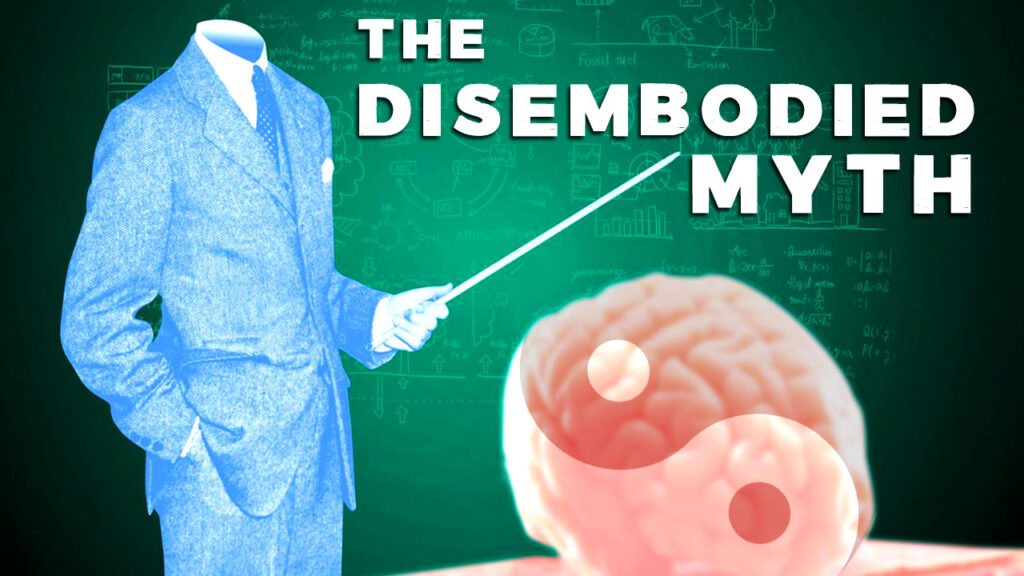
One of the main differences between the East and West is how the mind is viewed. From Plato all the way down to Descartes and Kant there has been this belief in the disembodied mind and this perspective has influenced many institutions such as religion, science, and education. Actually, this model is still today the common belief in the West and it is starting to infect the East, especially through education’s focus on being rational. But is the disembodied model of mind the way the mind actually is? The Eastern spiritual traditions, especially Taoism, disagree with this model because of the fact that the West are only focusing on one cognitive function and area within the brain where the seat of “I” consciousness resides and not the whole brain, something that even cognitive science agrees with. The Eastern view essentially is mind-body holism while the Western model is mind-body dualism. This knowledge has been one of the most enlightening for people who have read my new book ‘Emotional Intuition for Peak Performance.’ In this video, I will explain both models. Which model is the truth? Find out. NOTE: This site directs people to Amazon and is an Amazon Associate member. As an Amazon Associate I earn from qualifying purchases, at no additional cost to you. The pages on this website may contain affiliate links, which means I may receive a commission if you click a link and purchase something that I have recommended. This goes a tiny way towards defraying the costs of maintaining this site.
THE CHAKRAS | A Systematic Understanding of the 7 Psychological Centers
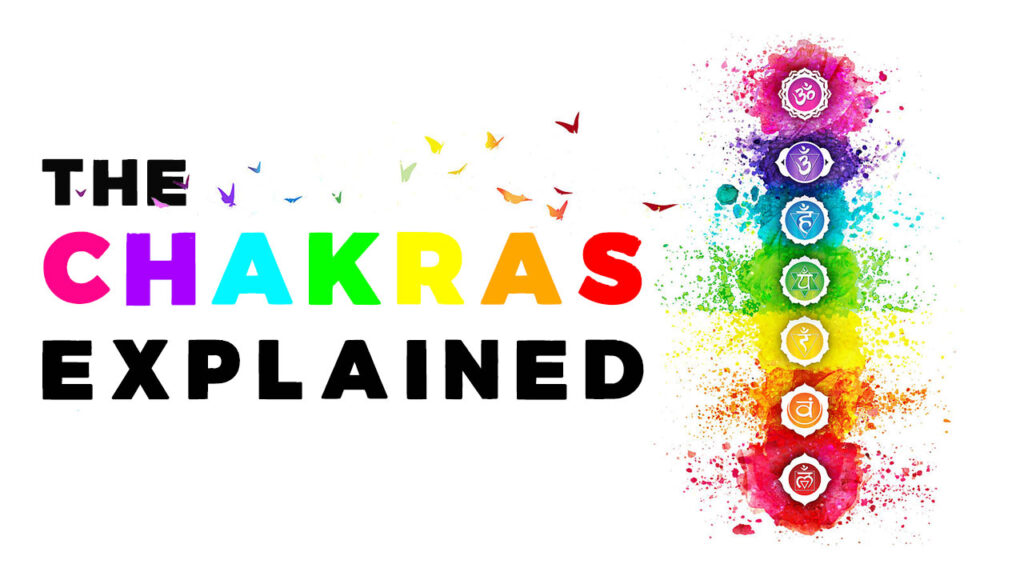
In this podcast, we will explain the seven chakras of the human organism. People have a nervous reaction when they hear the word chakras because a lot of new-age spirituality has warped the actual system and philosophy based on a misinterpretation of what energy is according to the tradition and what the chakras actually are. The seven main chakras of the human organism are related to energy, but an accurate interpretation is psychoenergetic centers or psychological centers. Understanding these seven chakras in-depth gives us a road map to enlightenment through understanding what psychological state we are in in any given moment. NOTE: This site directs people to Amazon and is an Amazon Associate member. As an Amazon Associate I earn from qualifying purchases, at no additional cost to you. The pages on this website may contain affiliate links, which means I may receive a commission if you click a link and purchase something that I have recommended. This goes a tiny way towards defraying the costs of maintaining this site.
The Social Dilemma Documentary Review, Mental Health, and Strategies for Digital Detox
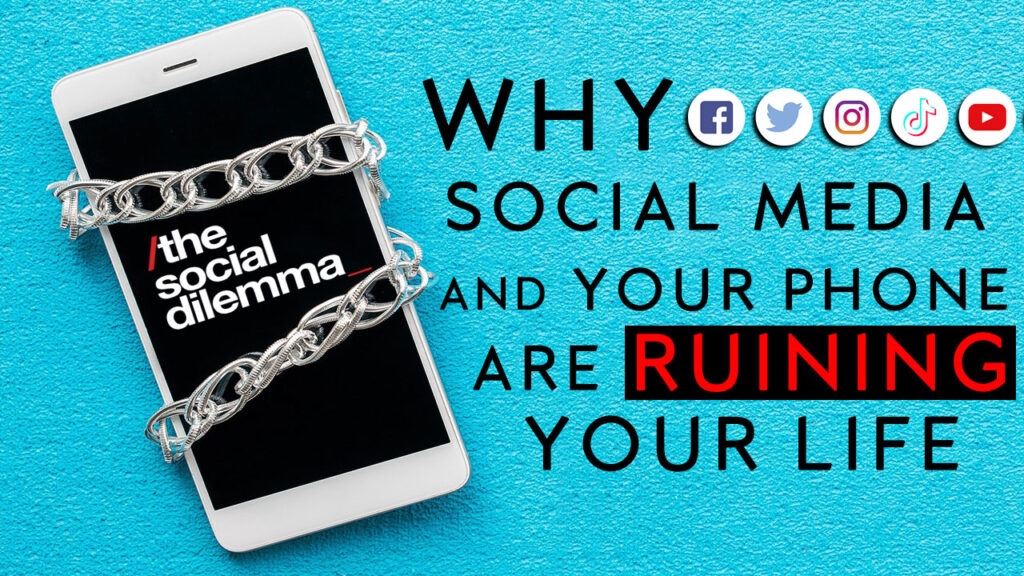
In this podcast, we will review The Social Dilemma documentary, the negative impact of the internet on mental health, and strategies for digital detox to reclaim our health and sanity. We have accepted social media and smartphones without questioning how they are affecting our lives, to the point where people will defend digital devices and their social media habits as if they are our close friends and family. Questioning the impact of social media and smartphones is something we cannot shy away from too much longer. We’ve all seen the exponential growth in anxiety, stress, depression, non-fatal self-harm, and suicide rates, especially among teens. This is the adult conversation we need to have. Some may say that it is a new form of media that we will get used to and that a behavioral addiction is not as bad as a substance addiction, but many people just don’t know how much of their lives is actually controlled by clever algorithms and vanity metrics that prey on two vulnerable behavioral patterns that were essential for our survival as we evolved (more on those two behavioral patterns in the podcast). Personally, I’ve always had a very distant relationship with social media because I don’t own a smartphone. One of the inspirations back in 2015 for writing the manuscript for Fasting the Mind was the psychological damage the digital world in general is having on our health, well-being, and sanity. Fasting the Mind along with my new book Emotional Intuition for Peak Performance pinpoint strategies for digital detox and a way of life geared towards health and sanity that we can live where we are not overwhelmed by the digital world. We will explore these strategies after dissecting how the digital world is controlling the way we think and behave. NOTE: This site directs people to Amazon and is an Amazon Associate member. As an Amazon Associate I earn from qualifying purchases, at no additional cost to you. The pages on this website may contain affiliate links, which means I may receive a commission if you click a link and purchase something that I have recommended. This goes a tiny way towards defraying the costs of maintaining this site.
Spiritual Strategies for Overcoming Emotional Triggers
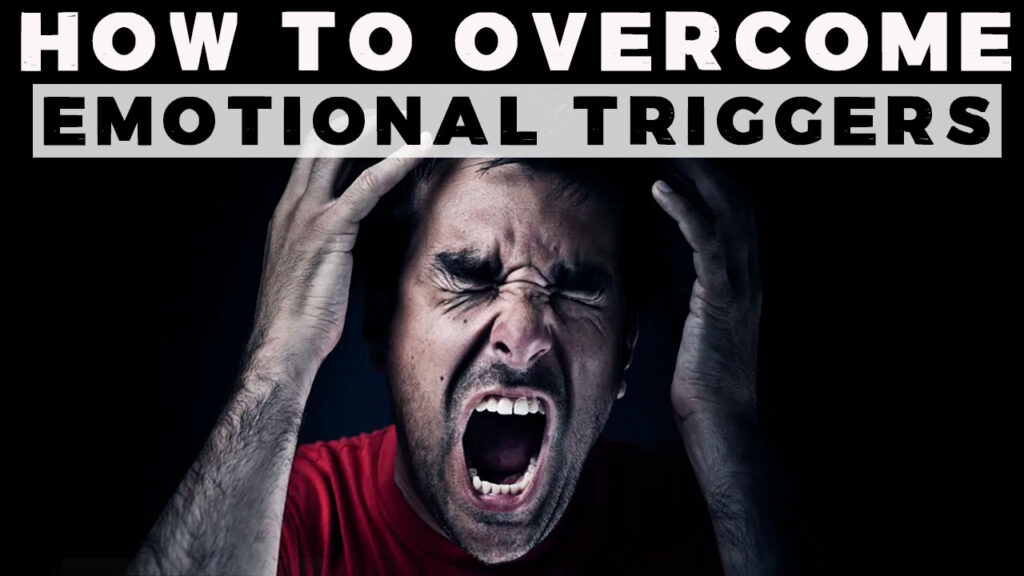
As the world increasingly becomes oversensitive, it is common for an individual to be emotionally triggered and annoyed by people in general based on their own isolated worldview of how the world and others should be. What is the cause behind this new form of madness? In this episode of Ask Jason, I will answer this question and explain the strategies you need to apply to your life so that you never succumb to being emotionally triggered. I will also share practical advice for remaining peaceful when dealing with other people who are emotionally triggered. NOTE: This site directs people to Amazon and is an Amazon Associate member. As an Amazon Associate I earn from qualifying purchases, at no additional cost to you. The pages on this website may contain affiliate links, which means I may receive a commission if you click a link and purchase something that I have recommended. This goes a tiny way towards defraying the costs of maintaining this site.
The Mystical 4th State of Consciousness of the Great Sages
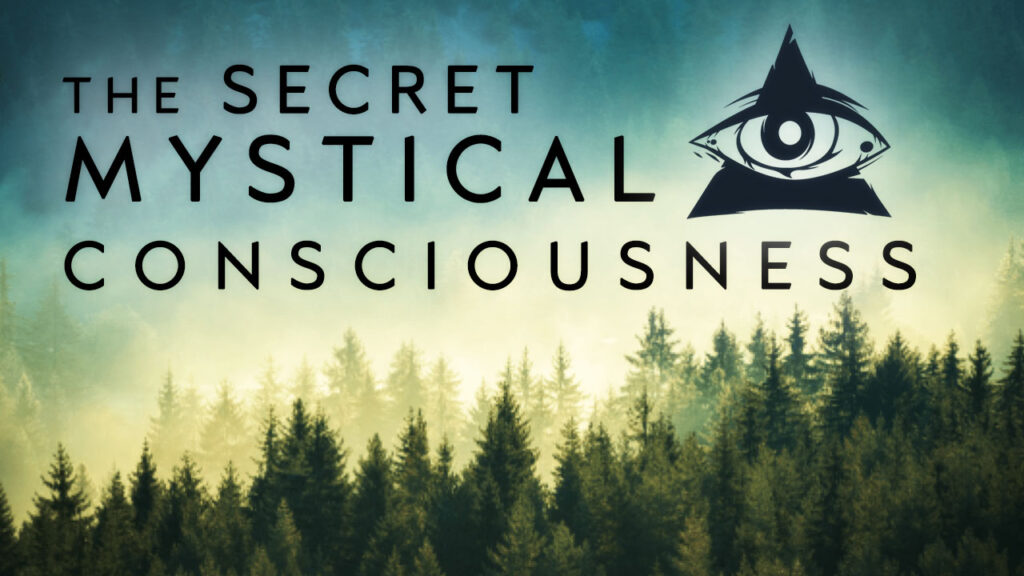
In this podcast, we explore the mystical fourth state of consciousness of the great sages. In the sacred text of the Upanishads this fourth state is known as Turiya. The Turiya, along with Atman and Brahman, is one of the main concepts to understand in the nondual path of Advaita Vedanta. To understand the knowledge of the great sages, especially Shankara and Gaudapada, we have to understand Turiya in relation to the other three common states of consciousness. This sacred knowledge known by few, is a mystical state of consciousness which is beyond any form of experience and experience itself. NOTE: This site directs people to Amazon and is an Amazon Associate member. As an Amazon Associate I earn from qualifying purchases, at no additional cost to you. The pages on this website may contain affiliate links, which means I may receive a commission if you click a link and purchase something that I have recommended. This goes a tiny way towards defraying the costs of maintaining this site.
20 Minute Guided Zen Meditation for Deep Inner Peace
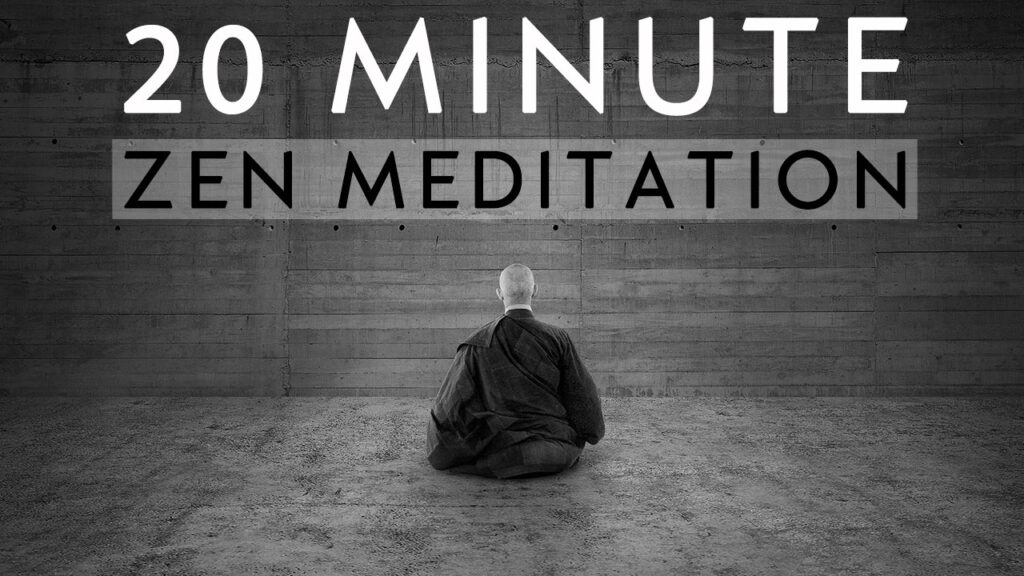
Zen meditation practices are extremely effective for silencing the mind and bringing true transformation to the mind. In this 20-minute Zen meditation for deep inner peace, I will guide you using an ancient Zen technique that reduces anxiety and stress, allowing your mind to come back to equanimity. Why not take a short 20-minute break and join me in a special communion in silence? NOTE: This site directs people to Amazon and is an Amazon Associate member. As an Amazon Associate I earn from qualifying purchases, at no additional cost to you. The pages on this website may contain affiliate links, which means I may receive a commission if you click a link and purchase something that I have recommended. This goes a tiny way towards defraying the costs of maintaining this site.
